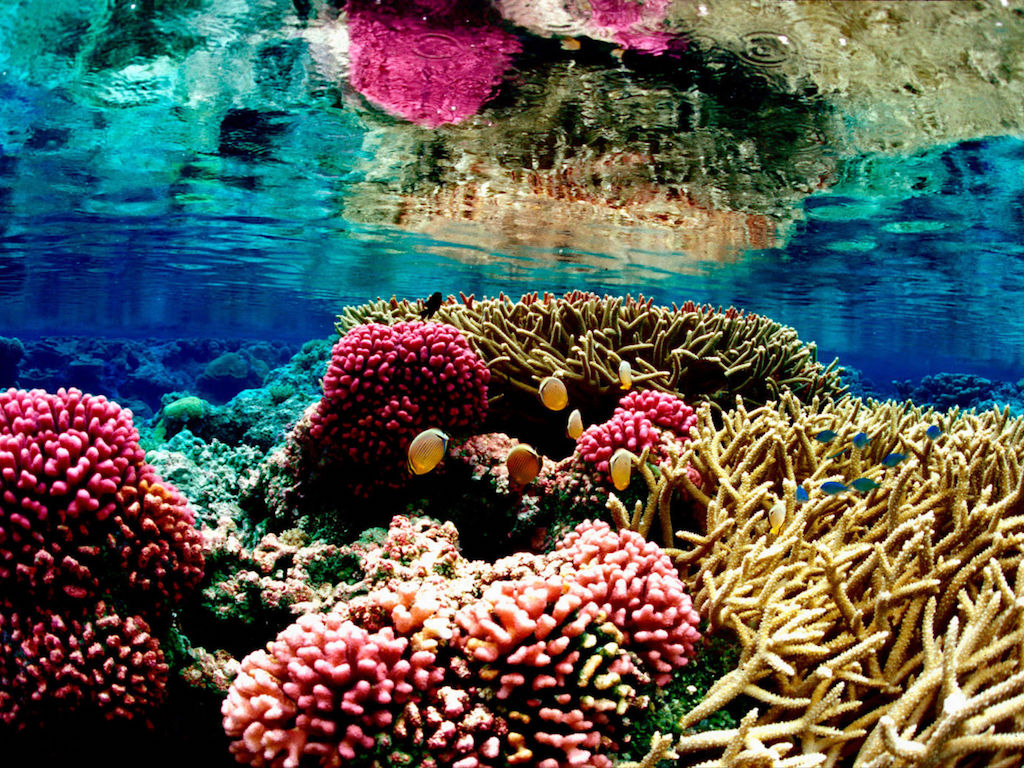3 Mins Read
In a recently published paper in Nature Communications, scientists have found that playing sounds through underwater loudspeakers can help and bring new life thelp dying coral reefs. These findings bring hope to the future of habitat conservation and recovery of coral reefs, which have been severely threatened by human activities, causing deep disruption to ocean biodiversity. The conclusions are also a pleasant surprise for Southeast Asia in particular, a region where over half of the coral reefs are at high risk.
The paper, which explored the potential of acoustic enrichment for ocean ecosystems and biodiversity, finds that playing sounds of healthy vibrant coral reef ecosystems around dead or dying corals could help boost its recovery. Using underwater loudspeakers to broadcast these sounds, scientists managed to entice juvenile and adult fish towards dying coral reefs, which helps reefs begin to recover. In comparison to an unmodified dead coral, the acoustically enriched reef experienced a doubling in the number of fish and a 50% increase in fish species within just 40 days. It managed to attract a wide range of fish types, from herbivores to planktivores and predatory piscivores.
Coral reefs are important for many different reasons, not just being the base for some of the most diverse natural ecosystems in the world. They help to protect coastlines from damaging extreme wave actions and tropical storms, which is becoming more and more common due to our climate crisis, and provide habitats and shelter for marine organisms.
READ: Whales Can Save Climate Change By Absorbing 33 Tonnes Of Carbon During Lifespan
Although reintroducing fish to coral reefs aren’t is not by itself enough to fully regrow a healthy coral reef ecosystem, the scientists pointed out that it plays an important function to prompt regrowth and recovery. Fish species help to clean and maintain reefs, and to create the space for new coral life to appear.
“Combined with habitat restoration and other conservation measures, rebuilding fish communities in this manner might accelerate ecosystem recovery,” said co-author of the paper Professor Andy Randford from the University of Bristol.
As coral reefs continue to die all over the world, these findings present a glimmer of hope for efforts to save our corals. Over the past decades, coral reefs have suffered due to a plethora of human activities, such as nitrogen poisoning from agricultural and industrial sewage and fertiliser run-offs, global warming that is driving higher ocean temperatures that causes coral zooxanthellae to flee and kill off corals, and ocean acidification as a direct response to carbon emissions in the atmosphere.
READ: 10 Shocking Numbers You Need To Know About The Global Plastic Ocean Crisis
Due to overfishing, sedimentation and pollution, coral bleaching and tourist-related damage, coral reefs in the Southeast Asian region in particular have been hit the hardest. Attracting the highest levels of biodiversity for the world’s marine ecosystems, Southeast Asia’s coral reefs have now been depleted so much that only 12% are considered low risk. The findings in the study, that acoustic enrichment might be an effective way to rejuvenate these coral reefs, are a positive sign to hold onto given that 350 million people in Asia’s coastal communities depend upon marine ecosystems for their livelihoods.
Lead image courtesy of Jim Maragos / USFWS.




